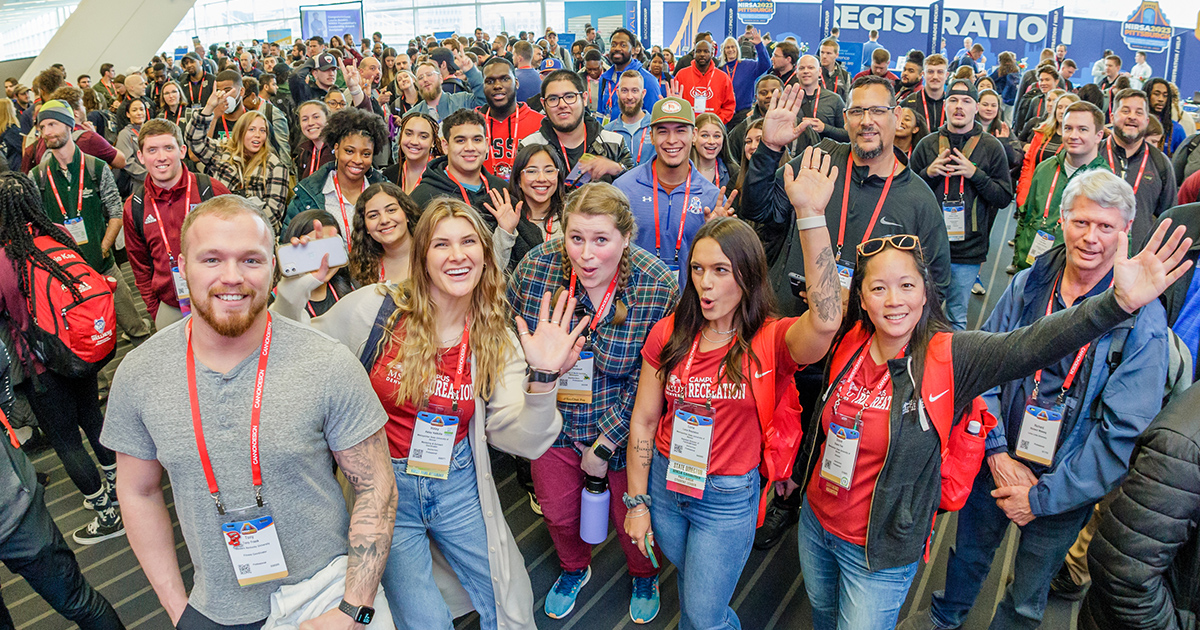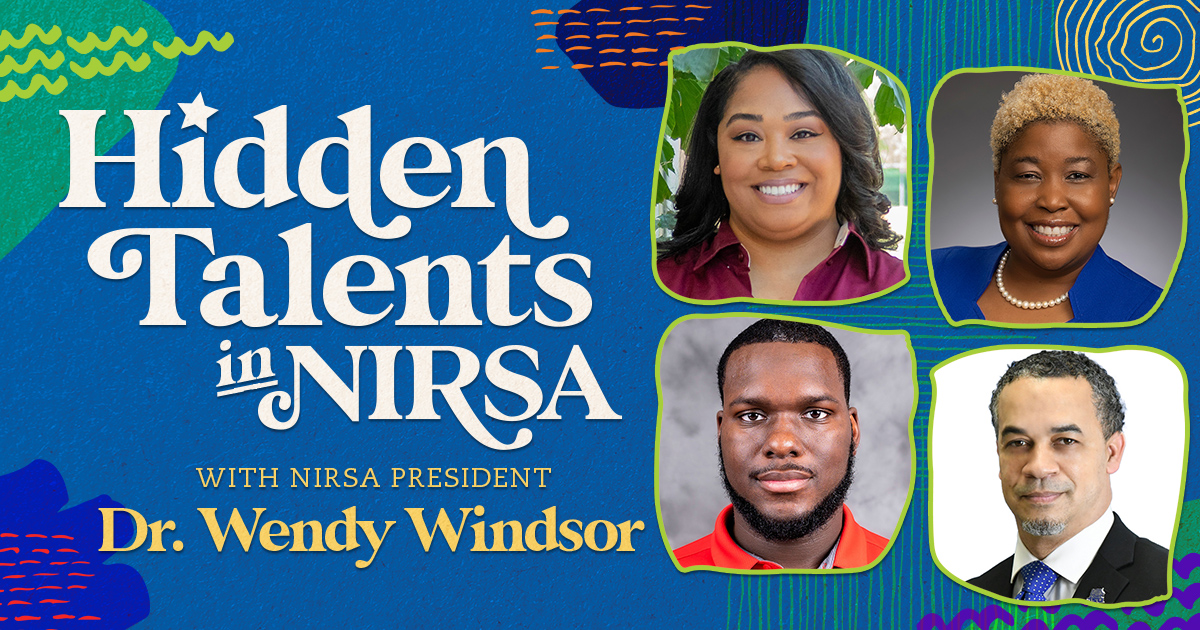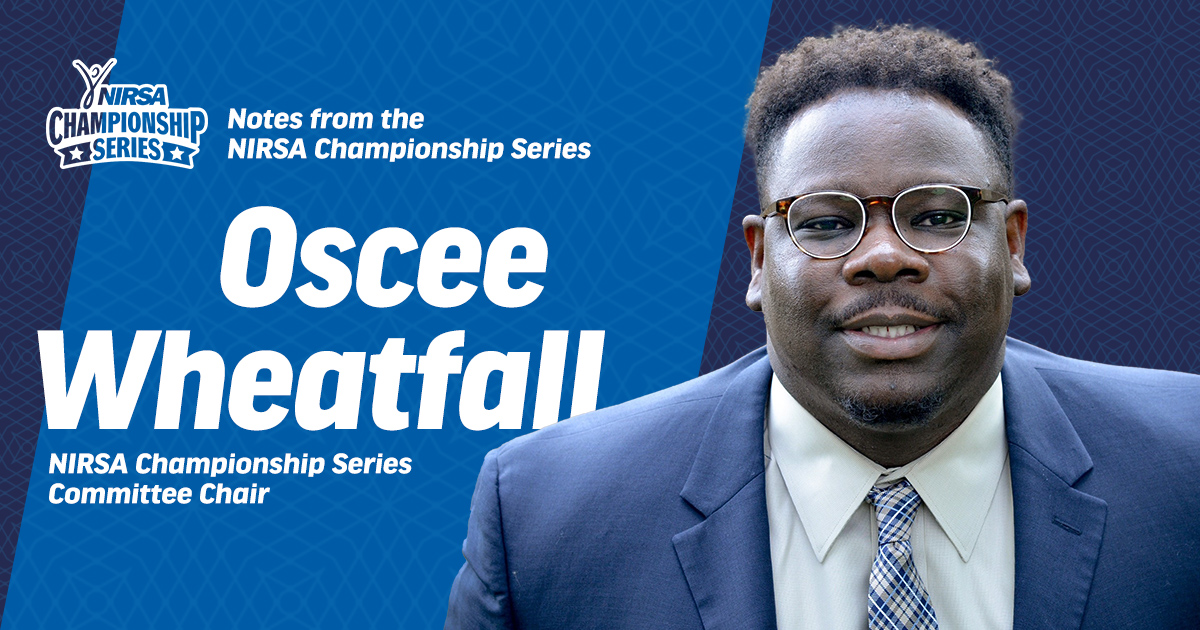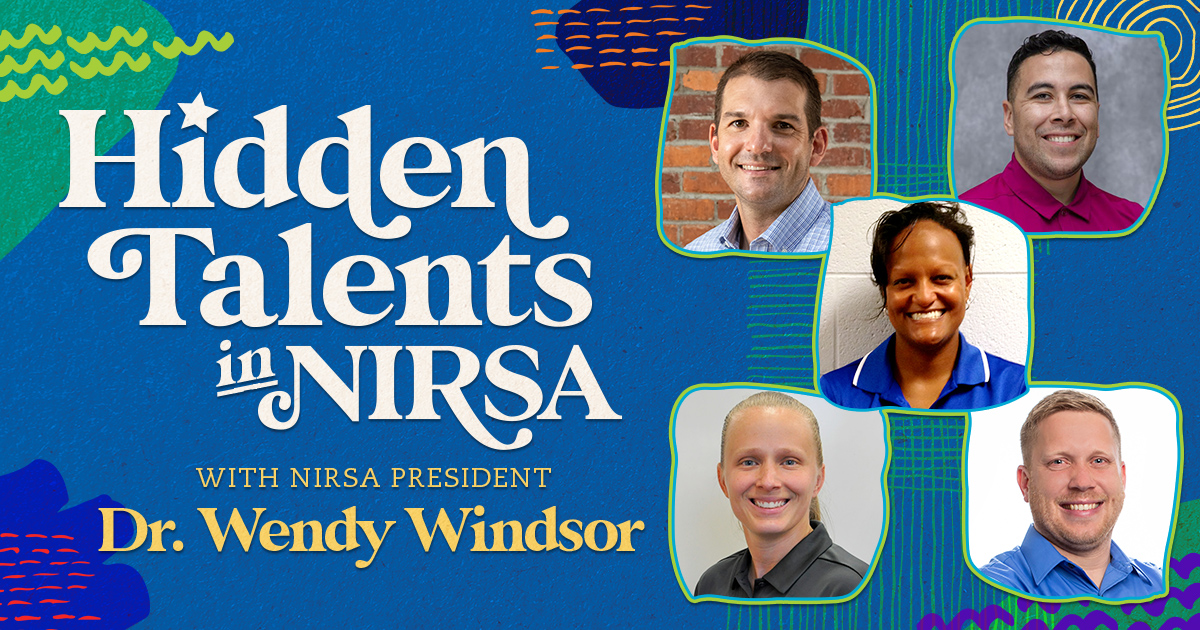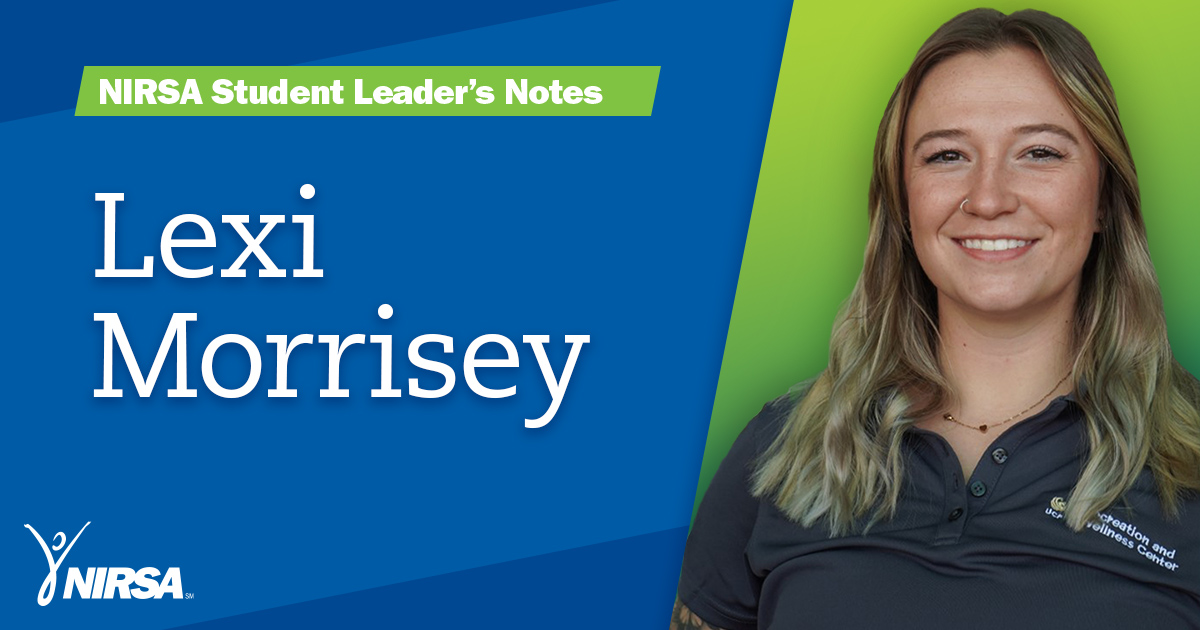Blue has always been my favorite color so it is no wonder that I found a professional organization whose color is lovingly referred to as NIRSA blue. I am proud to be a leader in collegiate recreation. We have some of the best jobs in the country as we impact the leaders of tomorrow and develop healthy communities. Sometimes I can temporarily lose sight of that or take it for granted.
Attending events and conferences outside of NIRSA sometimes reminds me of how good we have it, but it also challenges my perspective of others. In the past year, I have found great joy working with the USTA through our partnership. I was able to attend the USTA Southern Annual Meeting recently and realized how similar our two organizations are. We are both organizations that promote sport largely through volunteers, create strong friendships internally, develop officials, and have beautiful, blue logos.
Upon my arrival, I was warmly greeted by both new people and others I had previously met. They valued new members so much that my name badge was a special color so extroverts could quickly identify me as new and be sure to make me feel welcome. I think NIRSA and the Championship Series do a great job of welcoming outsiders; however, I started to question if we could do even better.
When we introduce staff at tournaments we often wear our years of experience as badges of honor, but does that make a first-time attendee feel lesser? I know I am guilty of being ecstatic to see my friends from around the country and can fail to see the newcomer sitting alone quietly in the room. How would it change that person’s experience if we were to tell them out loud how excited we are that they’re joining us for the first time? Some tournaments I have attended have paired people together to give them the opportunity to meet. On so many occasions I have connected with someone I would not have gravitated to initially.
I have enjoyed several leadership materials from Andy Stanley—a senior pastor—over the past few years, and one of the things that he regularly talks about is working to have an outsider’s perspective. We can become comfortable with the norms in our life, but when company is coming to our house their impending arrival often opens our eyes to the pile of shoes in the corner or the dusty picture frames that were okay the day before. What if we looked at our events from the perspective of a new player, coach, or staff member? Would that change our presentation, attitudes, or policies? We need feedback from newcomers so that we can see what we have become accustomed to in our lives. I was happy to complete a survey for the USTA after my return home that was specifically for new volunteers so they could capitalize on that perspective. I plan on using something similar at my institution with new club officers, staff, and participants.
Having served on both officials committees and all-tournament committees at events, I know that sometimes the groups simply coexist and could do better at intermingling. How do we create environments that facilitate crossover from various volunteer groups? Imagine how our world could be so very fine if we took that first step at the next event we attend to reach out to someone outside of our circles. Taking that concept one step further: How are we connecting with student officials?
We have some tremendous clinicians who become mentors to officials around the country and help them with questions that arise in a challenging avocation. This mentorship will hopefully be a part of the solution to a growing shortage of officials across the country. At an officials meeting for the USTA, they discussed concerns with tennis officials’ retention and recruitment. I know that we sometimes struggle with these issues on our campuses, but the creativity and ingenuity of our members in this area reminded me of how we are leading the way on this important issue. We are advancing student engagement through sport; many of our student officials go on to work in various levels of sport, just like Steve Anderson of the NBA. The relationships we are forming at Series events and on campus are going to be vital in solving the officiating shortage.
NIRSA, and especially the NIRSA Championship Series, have provided me and so many others the opportunity to meet wonderful friends and mentors around the country. My mother once told me that she thought I knew someone in just about every place in the country. She is not completely wrong. Series events have given me the opportunity to have meaningful conversations with colleagues around the country and make connections with some of the best, brightest people I know. Nevertheless, I recognize that we chose to take advantage of those occasions. I hope that the many future volunteers for the NIRSA Championship Series will continue in this strong tradition. I will leave you with the immortal words of The Turtles: “When you’re with me, baby the skies’ll be blue/For all my life./So happy together.”
Brooke Turner, Chair of the NIRSA Championship Series, is currently the Assistant Director of Competitive Sports at The University of Alabama.


